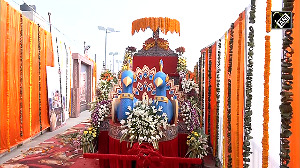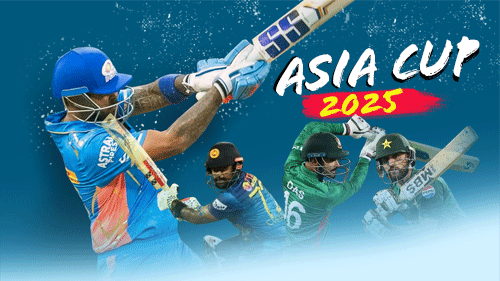The doping investigation which prompted top French team Cofidis to withdraw from competition has already cast a deep shadow over July's Tour de France.
The scandal has stirred up memories of the 1998 "Tour of Shame" which was rocked by police raids and led to the Festina trial in 2000 in which Richard Virenque and his team mates revealed the widespread use of doping in cycling.
Tour de France chief Jean-Marie Leblanc has so far declined to take any measures against Cofidis, even though he has already barred Spanish team Kelme from the race on doping grounds.
"Let's be patient. Let's wait for the knots to untie," Leblanc said after Cofidis, battered by a doping scandal for months, announced last Friday that they were pulling out of competition until further notice.
"If facts were revealed, the International Cycling Union (UCI) would take measures and we would be led to follow suit," Leblanc added.
Cofidis would be sorely missed by Tour organisers. Team leader David Millar of Britain is one of the leading time-trial specialists in the world and David Moncoutie is one of the strongest French hopes.
Cofidis sacked Philippe Gaumont and suspended two other riders, Cedric Vasseur and Mederic Clain, earlier this year after they were questioned by police about doping substances.
Last week, French sports daily l'Equipe published official documents from an investigation into the team accusing Cofidis riders and staff of taking and dealing in doping substances.
PANTANI DEATH
Kelme, who had hoped to get a wild card for the Tour, were barred by Leblanc last month after allegations by their former rider Jose Manzano that he had been forced to taking doping products which twice put his life in danger.
With or without Cofidis, the atmosphere on the 2004 Tour could be strained after former Olympic bronze medallist Gaumont told police a lot of riders turned to drugs because of pressure from sponsors.
Gaumont, who was charged with drug-dealing in February, said he would have been kicked off his team if he had refused to take performance-enhancing drugs.
The death of 1998 Tour winner Marco Pantani also shocked the sport.
The Italian, who died in a holiday apartment of a cocaine overdose on Valentine's Day, left a note saying years of police inquiries and judicial investigations had made him deeply depressed.
Pantani had been thrown off the Giro d'Italia in 1999 after failing a random blood test. He was put on trial for sporting fraud, accused of using the banned performance-enhancing drug erythropoietin (EPO).
The trial collapsed but three years later Pantani was suspended for six months after a syringe containing insulin was found in his hotel room.
Despite the frequency of doping scandals, most team chiefs and riders reject the idea that the whole sport is corrupt.
"I have often heard clever people say that riders take dope because organisers make races tougher and longer, but it's quite the opposite," said FDJeux.com team director Marc Madiot.
RANDOM TESTS
The French sports ministry and the UCI have adopted new measures to fight doping but their efficiency remains to be proved.
Teams have been asked to get rid of their "technical assistants" if they do not have recognised qualifications.
Team assistants such as Belgian Willy Voet in the Festina scandal and Poland's Bogdan Madejak in the Cofidis case have been charged with smuggling doping products.
Both the UCI and the French ministry have pledged to intensify random testing after it became clear that riders were often warned before checks.
The pressure will be especially high on the Tour as it looks set to be a historical one with American Lance Armstrong attempting to win an unprecedented sixth victory.
Armstrong's U.S. Postal team were investigated over doping allegations two years ago but no charges were brought.
Riders on the July 3-25 Tour could be the first to face new tests, widely believed to include ways to detect growth hormone and previously untraceable steroids.
Bodies such as the World Anti-Doping Agency (WADA) are keen to try out the procedures before the Athens Olympics in August and say the Tour would be an ideal testing ground.







